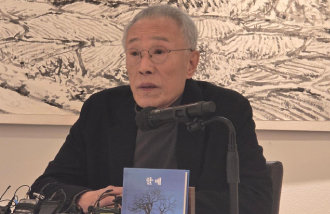Businesses should make efforts to create jobs and welfare funds
Businesses should make efforts to create jobs and welfare funds
Posted March. 22, 2022 08:01,
Updated March. 22, 2022 08:01
South Korean President-elect Yoon Seok-youl met with the heads of six economic organizations for the first time on Monday. The heads proposed regulation reform and labor law revision and suggested having regular meetings to discuss ways to create jobs. Yoon said it is the government’s responsibility to remove regulatory obstacles to allow businesses to think and invest more freely for growth.
It is symbolic that the president-elect’s first public appearance was to meet with the heads of economic organizations after he made decisions on the composition of the presidential transition committee and the candidate sites for the relocation of the presidential office Cheong Wa Dae.
The South Korean economic circle has become lethargic for the past five years due to the laws and policies undermining businesses, such as three major corporate regulation laws, three labor laws, and the Severe Accident Punishment Act. As such, businesses have high expectations for the new government. The comment made by Kim Ki-moon, the chair of the KBIZ Korea Federation of SMEs, on Monday that small and medium-sized businesses suffered the most under the previous government asking for the revision of the minimum wage system, the 52-hour workweek policy, and the Severe Accident Punishment Act must have been driven by the similar sentiment.
Yoon also desperately requires cooperation from businesses to keep his pledges to generate growth led by the private sector and create sustainable jobs. “The growth of businesses equals economic growth. I am sure you have felt and known what has been hindering you, so I’d like to ask for your advice,” said Yoon on Monday. As 80 percent of South Korea’s corporate tax revenue comes from the top one percent of companies, the success of his pledge to expand welfare benefits, which requires a lot of funds, depends on growing world-leading ‘super gap’ companies during his term.
However, cooperation between the government and businesses will not easily lead to results. Labor law revision and the easing of large-scale regulations are legislative matters, which means they can only be expected after cooperative governance with the major opposition party is ensured. The labor board system at public institutions, which was introduced by Yoon upon the request of a large labor union during his time as a presidential candidate, can worsen labor-management relations. Measures to reduce its adverse effects should be developed by listening to the voice of the business circle. Companies should also move away from the old practice of forming cozy relations with the government and focus on creating jobs. In particular, the Federation of Korean Industries, which attended the Monday meeting with Yoon after five years of disgrace for its involvement in the scandal surrounding former President Park Geun-hye, should keep this in mind.
Large companies have played a significant role in the South Korean economy surviving the COVID-19 pandemic. However, companies are getting tired of numerous regulations and contentious relations with the labor and increasing overseas investment. It is the new government’s responsibility to help large companies voluntarily return home to build new plants and hire young people.







